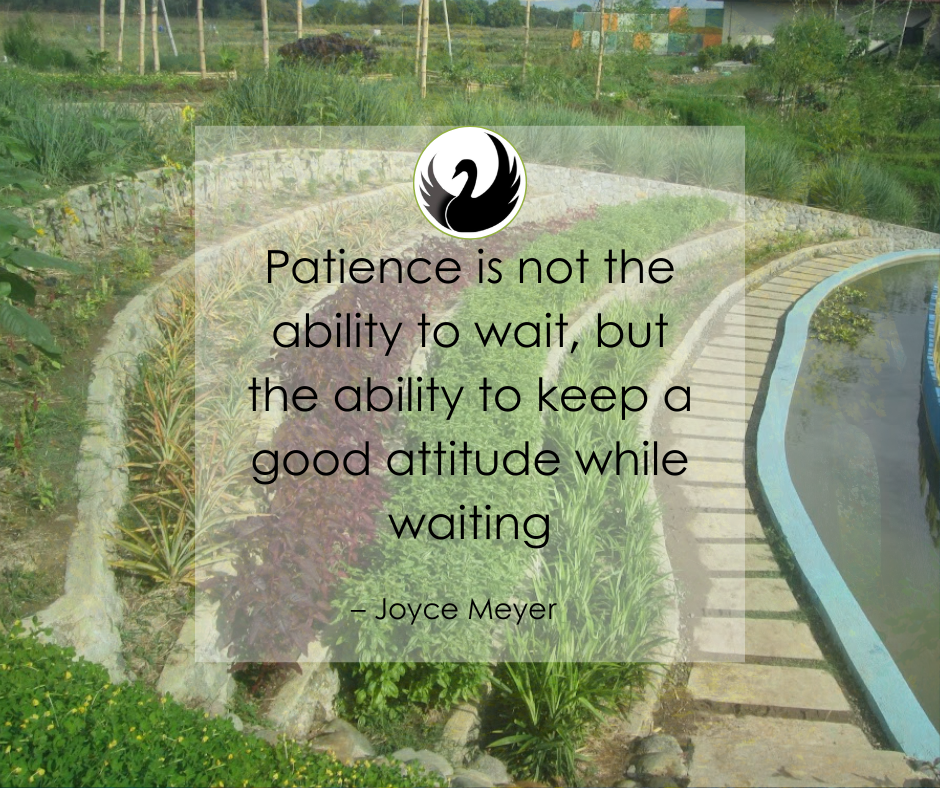“Patience is not the ability to wait, but the ability to keep a good attitude while waiting.” – Joyce Meyer
In this week’s Inner Conditioning Kamustahan in New Lucena, patience wasn’t just the topic—it was the spiritual workout. Like a seed quietly breaking open under the soil, our ICW participants from Badiang and Cabilauan unearthed powerful lessons in slowing down, letting go, and growing up emotionally.
Victoria Jucaban:
“Despite the negative issues, my patience prevailed. I don’t know why, but I’m not affected anymore. I’m truly thankful and blessed—especially with this topic and the habit of reading God’s Word daily.”
Sometimes, transformation sneaks in quietly. Victoria reminds us that patience isn’t loud—it’s the silent strength that shields us from emotional storms.
Just like in SEA Inc.’s IPAT-SIAD program, change doesn’t happen in one day. It’s the discipline of daily reflection, prayer, and presence that rewrites our responses.
Ma. Paz Taberos:
“I can’t perfectly stop myself from complaining, but I’m grateful for this kamustahan. I was reminded of God’s word—that even Jesus was patient and didn’t complain. This reminder will really help me at home.”
In IPAT-SIAD, Inner Conditioning is the first pillar—because if we want to change communities, we must first change how we react inside our homes. And as Ma. Paz beautifully notes, it starts by remembering that even our greatest model of leadership—Jesus—practiced quiet strength.
Divinia Babaylo:
“Sometimes I really can’t control my reactions. I lose patience. But I realized I need to avoid negativity and toxic situations. If you know and talk to God, your thoughts become peaceful.”
Here lies the IPAT-SIAD spirit: peace isn’t passive; it’s a choice. Divinia’s reflection teaches us that peace begins by filtering what we absorb—emotionally and spiritually.
Ma. Gina Espada:
“I realized it’s not good to keep talking and complaining. We really need deep patience.”
IPAT-SIAD governance calls for community conversations, but also for deep listening—starting with ourselves. Gina reminds us that silence is sometimes the most radical act of leadership.
Merlinda Sudario:
“I’m very talkative and short-tempered because I’m a perfectionist. But now, I realize that I lose in that setup. I need to instill patience in my mind. Reading the Bible helps clean my mind and control my temper.”
Merlinda’s honesty brings to light a hard truth: impatience often stems from control. But growth, like IPAT-SIAD development, is never perfect. It’s messy, slow, and sacred. Real leadership is choosing progress over perfection.
Mercedes Original:
“Today, I learned that I shouldn’t always complain. I need to learn to stay quiet and be patient—especially at home.”
SEA Inc. believes that local development begins at the barangay, but leadership begins at the kusina, the kitchen table. Mercedes’ reflection affirms that home is the first school of governance.
Gillian Sibolinao:
“I realized I need to value myself—that’s why I stopped complaining. Peace comes when there’s no conflict. Instead of complaining, I just pray. I believe nothing is impossible with God.”
This is where patience turns into power. Gillian’s words shine: prayer isn’t an escape; it’s a strategy. Like in IPAT-SIAD, faith and function go hand in hand. We work, we wait, we pray—and we trust.
Kelly Sobredo:
“I learned to stop minding the negatives. I just let them go. I know it will only stress me, so I ignore or avoid them instead.”
Kelly speaks to every community leader who’s ever been attacked, misunderstood, or judged. In the SEA Inc. journey, resilience doesn’t mean enduring all criticism—it means knowing what’s worth your energy.
I New Lucena, powerful things are happening—not just in projects and plans, but in people. Patience, as these kamustahan stories show, is no longer passive waiting. It is the active choosing to respond with grace, grow in silence, and build a future that starts from within.
As one of our ICW leaders once said:
“You can’t transform a town until you’ve learned to transform your tone.”
So we pause. We breathe. We choose to listen to each other—and more importantly, to ourselves. Because patience isn’t just a virtue—it’s a vital part of development.
And with every “kamusta” we ask and answer, New Lucena grows more grounded, more united, and more ready to lead.





Leave a Reply